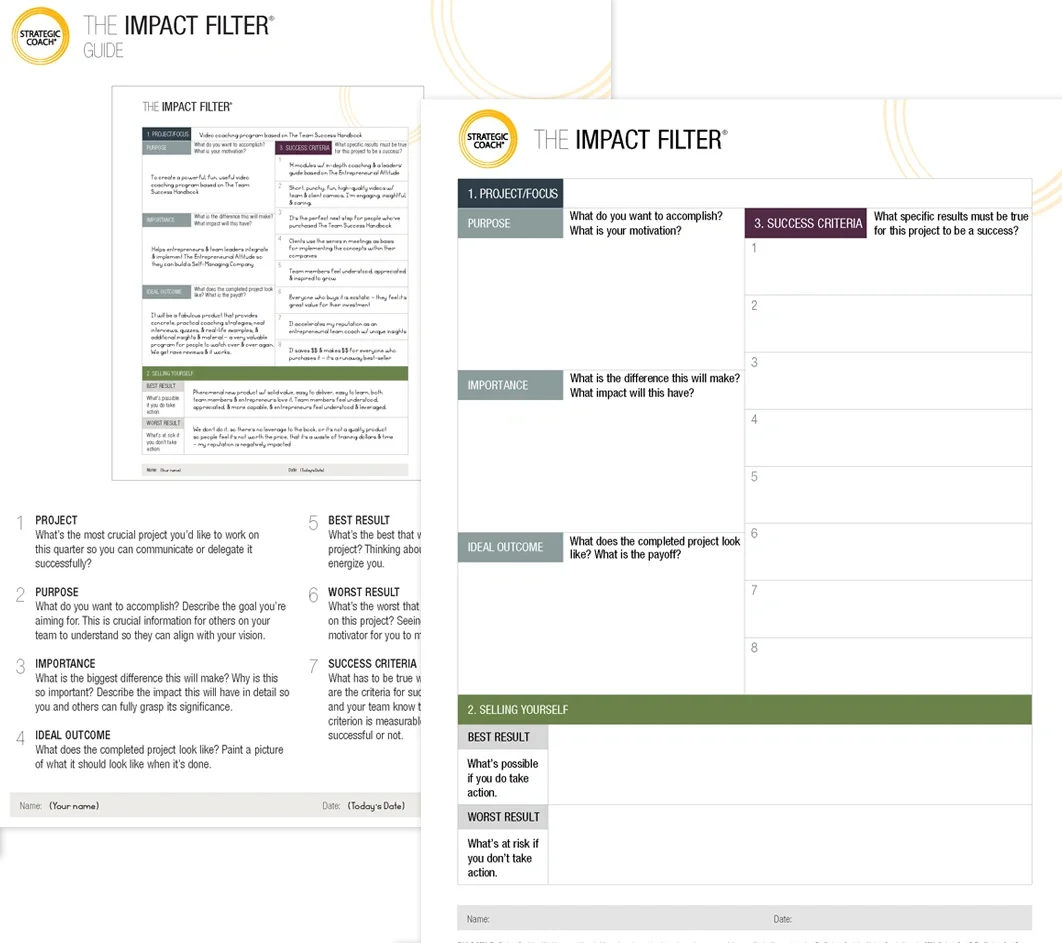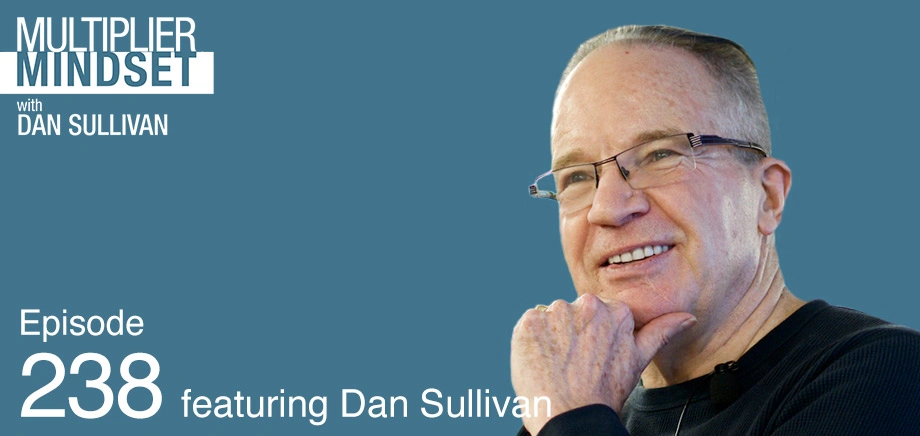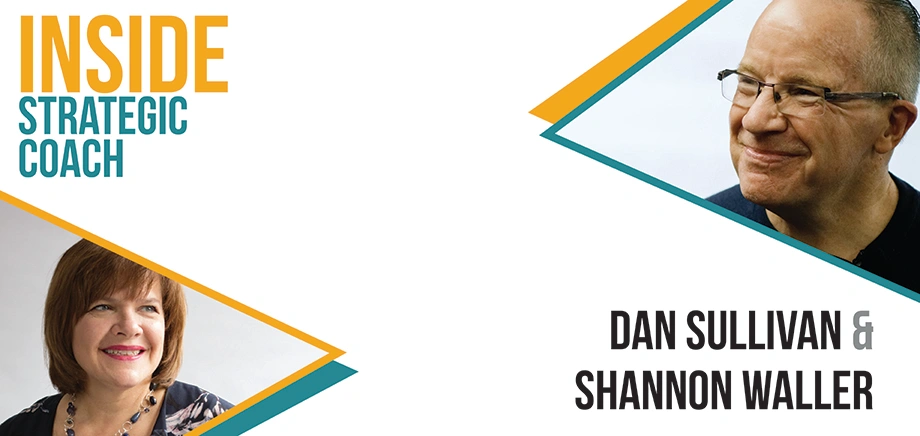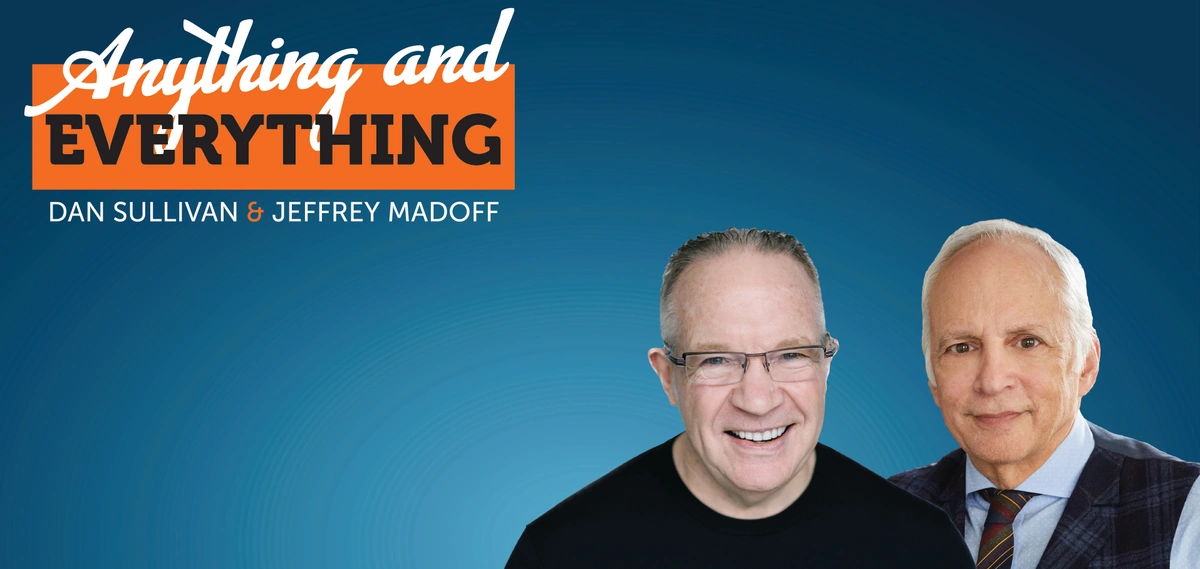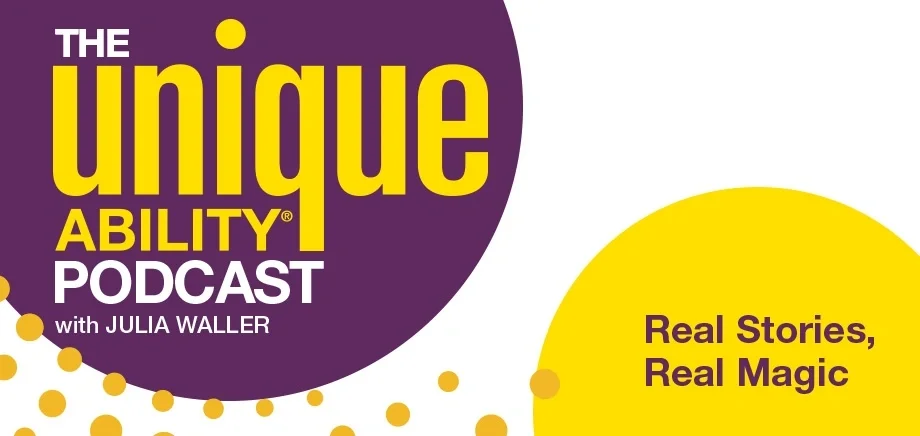How To Win The Battle For Attention
September 10, 2025
Hosted By
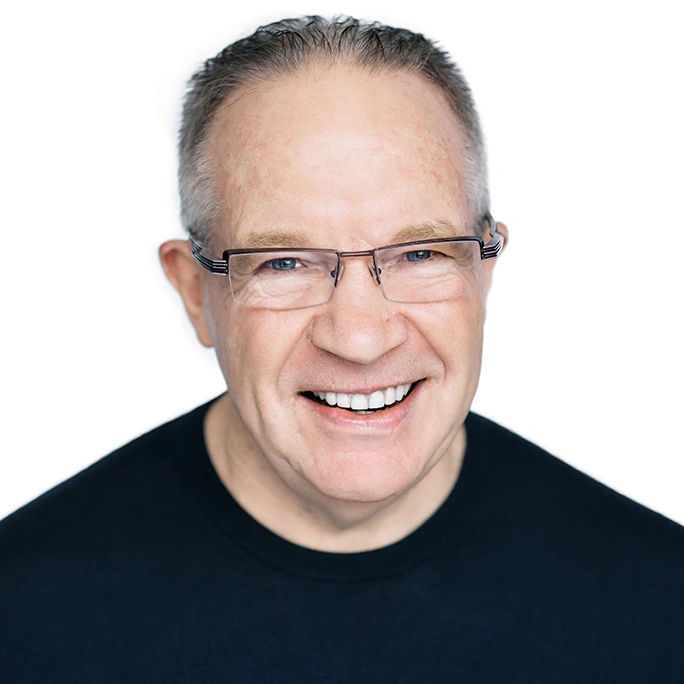 Dan Sullivan
Dan Sullivan
What if the key to differentiation isn’t about your product, but your perspective? Dan Sullivan reveals how to escape the crowded marketplace by shifting your focus from your needs to your clients’ futures. Learn the powerful question that instantly creates partnership and makes you the most valuable person in the room.
Here’s some of what you’ll learn in this episode:
- The two critical questions that clarify an entrepreneur’s most impactful actions.
- The two time systems in which the best entrepreneurs operate.
- How to determine the needs of your customers and clients.
- A simple method to instantly engage anyone in transformative thinking about their goals.
- The one essential question that builds partnership and loyalty with every client.
- Why Strategic Coach® members continuously achieve bigger and better future outcomes.
Show Notes:
Stating goals as needs puts entrepreneurs in a position of asking for permission rather than leading with confidence.
Bold goals are vivid pictures of yourself in the future operating at a higher level.
State your ambitions based on what you truly want, not just what you think you need.
Modern uncertainty means that seeing clearly beyond the next 90 days is difficult, so it’s important to focus on shorter time frames and long-term vision.
Your entire future lies in helping your customers and clients achieve their own futures.
The real competition is not for market share, but for a person’s time and attention.
Every entrepreneur can offer clients something truly unique that nobody else can provide.
Entrepreneurs who make every conversation about the other person hold their attention and differentiate themselves for the long term.
Maintaining calm confidence in your own future lets you focus on creating breakthroughs for others.
Traditional advertising talks about the seller, but true impact comes from asking clients about their future goals.
Strong partnerships are built by consistently helping top clients clarify and expand their future goals together.
Entrepreneurial growth is a continuous process across 100 quarters, fueled by a commitment to others’ futures.
Strategic Coach’s unique value is opening clients’ eyes to new possibilities through insightful questions, not prescribed solutions.
Resources:
Wanting What You Want by Dan Sullivan
The D.O.S. Conversation® by Dan Sullivan
Episode Transcript
Dan Sullivan: Hi, this is Dan Sullivan. I'd like to welcome you to the Multiplier Mindset Podcast. So how does an entrepreneur going into the marketplace, how do you differentiate yourself from other people? It's a great question, and I've kind of narrowed it down to two answers. The first answer is, as an entrepreneur, what do you really want? When you look at your ambitions for yourself as an individual, but secondly, as an entrepreneur, what do you really want where you answer in a way that's just totally positive and totally confident?
We have a book called Wanting What You Want, and I think where people go wrong, they only state their goals in terms of what they need. In other words, you know, I wanna be able to pay the bills, I've got these expenses and I got that, and it's about need, okay? And it's almost like you're asking the world permission, could you please give me this because this is what I need. But I think if you state your goals going into the marketplace, you can do this in terms of years, you can do it in terms of a year, or you can do it in terms of next quarter—one of the things I do is I have two time systems. I operate continually on two time systems.
One of the systems, the period of time is 25 years, and the other one is 90 days. And I don't pay much attention to what's in between the next 90 days and 25 years. And the reason is, my experience, and I've been, you know, I'm pushing 50 years as an entrepreneur, is that less and less can we see clearly what's happening beyond the next 90 days, but if we're committed to something that we truly, truly want to achieve, and I say goals are actually a picture of yourself in the future, you're having a much bigger impact, and you're just much better, much more skilled, you're much more confident.
And then every quarter, so then I work backwards, and the neat thing about 25 years is you get 100 quarters—what's available to me during the next 90 days? Then I start looking at clients and customers because all of my future lies in helping them with their futures. People say, well, what's the right product? What's the right service? And I said, well, I guess, any product or any service that your customers and clients think is really important in their future. So they'll be going to lots of different places to get what they need in their future, but there's probably something that you can provide that nobody else can provide.
So, you know, I don't care about advertising. I don't care about marketing because if I know people, I can ask them questions. And we have, of course, the really powerful D.O.S. question. If you and I are talking three years from now and looking back to where we are today, what has to happen in your life over those three years, personally and professionally, for you to feel happy with your progress? And just by asking that question, you've just immediately differentiated yourself from anybody else that they're going to be interacting with. Nobody else is gonna ask them that question, because all your competitors, it's not competitors in what you do, it's competitors for the client's time and attention. The competition isn't over products and services, the competition is over somebody else's attention.
And then, since you got their attention, what do you think? If you had a choice between talking about you or talking about them, and they gave you your attention, what do you think they'd respond best to? Think if you went in and you just talked about yourself; that would be a good use of their attention. If I were in their shoes, I would end the conversation really quickly. I don't need any information about you. But if, on the other hand, someone gives you their attention and you make your communication with them during that period just about them, you'll have their full attention for a long time.
And that's why we use the D.O.S. question, because once you ask the question, they are so interested in what's happening to their thinking because they're with you. And it isn't anything about you that they find interesting, it's just that you have allowed them to think about themselves in a way that they've never thought about themselves before, and they can see their mind going, and they say, my golly, I've never thought about that. Three years in the future, looking back, you know, what kind of progress do I have to make to feel happy with it? Well, you know, I really want to think about that.
And that's the whole point. That's how you differentiate yourself in the marketplace these days. Don't talk about yourself. All the people who are advertising and marketing are talking about themselves, but they're competing with millions of other people who are talking about yourself. So the way to differentiate yourself is be so calm about your own future that you can put all your attention on the other person and then just ask them a question that gets them hooked on their own future.
And guess what? The hour, first hour they spend with you is probably the best first hour they've ever spent with anyone in their life. They'll talk about you, you know, that talking about you, boy, this guy, if you just talk to him, all of a sudden you can see all sorts of things that, you know, this woman just, it's like she knows me totally, but she just asks me all those questions. I would say if the competition of answers, and that's what marketing and advertising is, my answer is better than everybody else's answer. The only problem is it doesn't relate to anybody's question.
The only question I think is really important to ask customers and clients is just to ask, how are you seeing your future? What's that look like? And open-ended, you don't have the answers, they have the answers. You have the question, they have the answers. And they'll feel a partnership with you, and it's the partnership that gives you a chance to go forward with the people who have the biggest futures where you can be useful.
So, two things: Know who you are 25 years from now, and then over the 100 quarters, just keep improving. And in the marketplace, make it all about other people with their future. Don't talk about products, don't talk about services, talk about their future. Just keep asking questions, how's your future get bigger and better? You'll have them for the next 25 years. So this year, I have 30 Strategic Coach clients who are crossing over the 30-year mark. Five days ago, I had seven of them in one workshop. 120 quarterly workshops. Every time they come, they work on their future.
So that's it. That's the product we have in Strategic Coach. We have questions that open the eyes of our clients and customers to their own future. And their future just keeps getting better because every time they come back, we ask them new questions about their future. That's how Strategic Coach is totally unique from every other organization in the world, and it's always about the futures of our prospects, customers, clients. Nobody else has thought about doing that.
Related Content
The Impact Filter®
Dan Sullivan’s #1 Thinking Tool
Are you tired of feeling overwhelmed by your goals? The Impact Filter is a powerful planning tool that can help you find clarity and focus. It’s a thinking process that filters out everything except the impact you want to have, and it’s the same tool that Dan Sullivan uses in every meeting.
